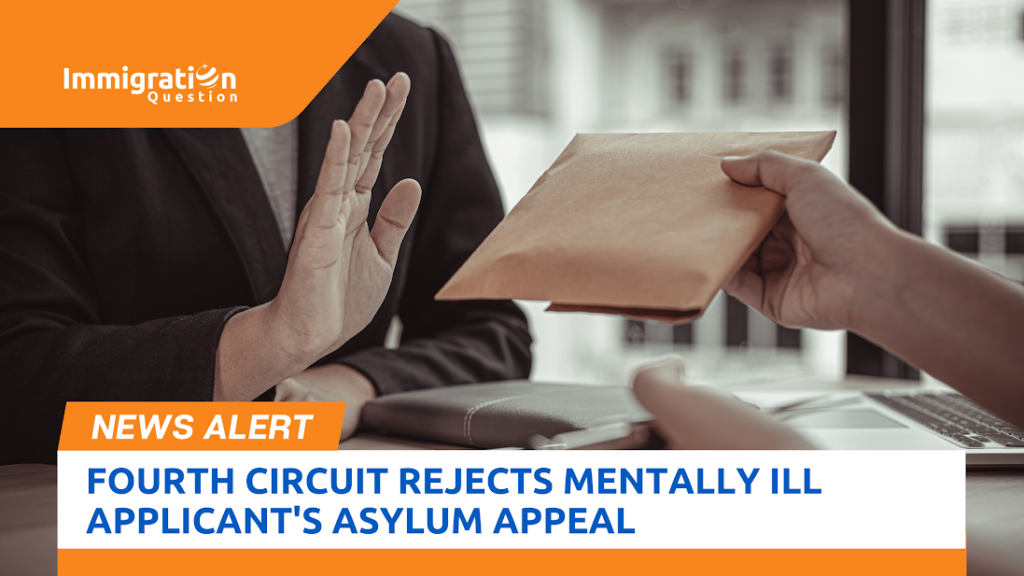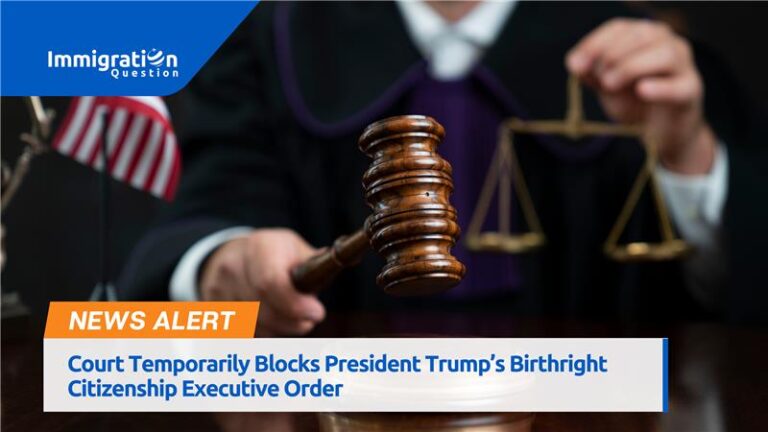Introduction
The Fourth Circuit, in the Joshi v. Garland case, decided that forcing someone with mental illness into a hospital doesn’t automatically mean they can get asylum. This is because the person’s mental illness made them act in a way that was disruptive and violent.
Brief about the case
Hanumant Joshi, a 31-year-old from India, came to the U.S. in 2015 to study engineering at Pennsylvania State University. He has a history of mental health issues, including depression, bipolar disorder, antisocial personality disorder, and schizoaffective disorder, starting in India and continuing in the U.S. He was first hospitalized in Pennsylvania in 2016 after harming himself during a manic episode. His brother, Sameer, brought him back to India, where he lived with their father.
In 2016, he was hospitalized again in India, where he was given unknown medication under threat of solitary confinement. He returned to Penn State in 2017-18 but was hospitalized once more in 2018 before being sent back to India. In 2019, he was hospitalized again in India, where he was forced to take medication. After being released, he worked in India and lived in an apartment. Upon his latest entry to the US through Toronto, Canada, he was involuntarily hospitalized again.
After being released, he refused to leave the US, which led to charges for damaging property and refusing to leave. He was arrested for more crimes in 2020 and 2021, eventually being detained by ICE in 2021 for immigration violations.
The legal history of the case
Joshi, an Indian man with mental health issues, applied for asylum and protection from torture in the US, fearing harm and property loss in India. However, the immigration judge rejected his case, saying his application was untimely and his treatment was not persecution. The judge also found no evidence of past or future harm.
The Immigration Judge (IJ) found that Joshi didn’t clearly show how his alleged persecution was related to his protected status. He argued that he was part of known vulnerable groups like Indian men with severe mental illness needing medication, those with psychosis, and those with unpredictable behavior.
The IJ acknowledged these groups but didn’t agree with Joshi that they were relevant to his case. Joshi said his first two hospital stays in India were due to his mental health issues, but he didn’t explain the reasons for the other stays. The IJ believed Amar and Sameer were only interested in Joshi’s wealth and property, with no evidence they targeted other Indian men with mental illness or planned to.
Moreover, the IJ decided Joshi couldn’t get the United Nations Convention Against Torture (CAT) protection because he didn’t show he was tortured using electroconvulsive therapy (ECT) in a way not allowed under the law. The Board of Immigration Appeals (BIA) upheld the IJ’s decision in February 2023, saying Joshi didn’t prove he was persecuted in the past or feared future persecution.
The BIA agreed with the IJ that Joshi’s hospital stays and ECT were for medical reasons, not torture and that Joshi didn’t show the mistreatment he feared would be considered torture under the law.
The legal question before the Fourth Circuit
The Fourth Circuit was called upon to figure out if forcing someone into a hospital and giving them ECT, even though they have a clear record of severe and risky mental health issues, was either “persecution” or “torture.”
Since there was a lot of proof that backs up the Board of Immigration Appeals’ decision that it wasn’t, the Fourth Circuit turned down Joshi’s request to review it.
The legal analysis and decision on asylum
The Attorney General can grant asylum to people who are “refugees” and show they are being persecuted. This includes people who have been persecuted in their home country or who fear they will be in the future. To prove persecution, they must show it is both their own experience and a real threat.
Usually, actions by a country to control its people or protect them from harm are not seen as persecution. For example, sending someone to jail for breaking the law or making them serve in the military is not considered persecution because they are part of the country’s rules.
The Attorney General decides if someone should get asylum based on their ability to show they are being persecuted. For instance, being forced to go to a mental health facility for treatment is not seen as persecution because it is a necessary part of getting better.
In the case of Joshi, a person from India with mental health issues, he was forced into treatment in both the United States and India. The decision was made that his treatment was not persecution because it was a standard medical procedure. Even though he was in a mental health facility for a while, the treatment was seen as necessary for his health. His family members were accused of doing what they did for money, but the decision was made that this was not persecution but a selfish act.
The State was accused of persecuting him through its laws. However, Joshi’s claim was rejected because he didn’t meet the “nexus” requirement, which means the persecution was because of his protected status.
The evidence suggests that Joshi’s family targeted him for his inheritance, as no one else could have been chosen. The Fourth Circuit found that Joshi’s fear of being institutionalized was due to a family dispute over property, not his mental health.
Therefore, the Fourth Circuit concluded that Joshi didn’t suffer persecution or fear future persecution. Even if this were true, there was no reason to say the persecution was because of his protected status. Thus, the Fourth Circuit rejected Joshi’s asylum claim.










